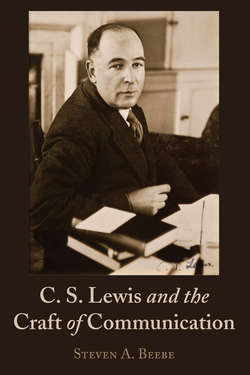Читать книгу C. S. Lewis and the Craft of Communication - Steven Beebe - Страница 22
На сайте Литреса книга снята с продажи.
Effective Communicators Are Intentional
ОглавлениеThe second principle posits that Lewis was an intentional communicator. To be intentional is to be mindful, purposeful, and aware of the communication goals and objectives to be accomplished. Lewis was intentional in that he planned his messages for maximum clarity and persuasive effect—he used the writing process to help sharpen his ideas and communication goals. Pre-writing activities, taking walks and being a voluminous reader, helped him think about what he was going to say before he said it. His communication objective, although sometimes intentionally but subversively masked from the reader until just the right moment, was always clear to Lewis. He knew where he was leading his readers. Lewis’s letters and occasional diary entries modeled his journalistic skill of clear and memorable description. Lewis does not wander aimlessly—even though as a reader you may, at times, not know exactly where he is or where he is leading you, he knows. His books, essays, lectures, stories and poems focused on illuminating a specific idea linked to a precise purpose.
Clarity was an important communication goal for Lewis, whether writing a novel or helping a student express his or her ideas in a tutorial. A specific strategy for being clear is to use precisely the correct word. Having the command of a large vocabulary gave Lewis the ability to use just the right word rather than needing to pile on unneeded words. Brevity was more than the soul of wit; it was his pathway to clarity. Lewis marshalled words to achieve a memorable style. Chapter 5 describes Lewis’s principle of intentionality.
←22 | 23→
